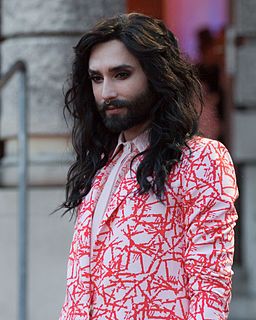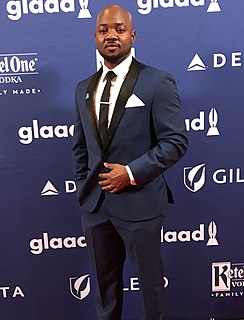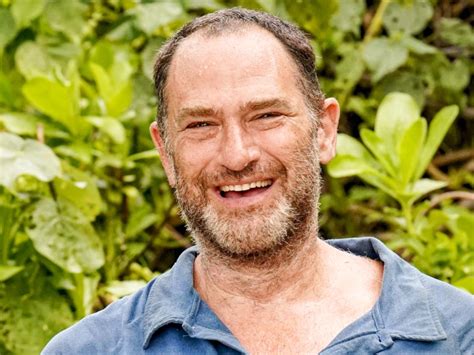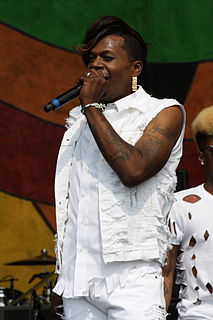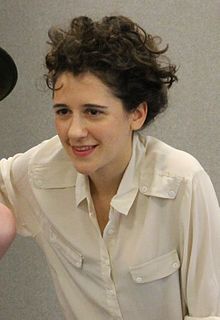A Quote by Conchita Wurst
I am happy being a man in a dress. Some people get confused and think I'm a trans woman, but I'm strict about the difference. What I do is performance, it's staged, it's glamour - it's not real life. But for trans people, being born in the wrong body - there's nothing glamorous or easy about that.
Related Quotes
I am transgender, so 'he' is not appropriate and 'she' is problematic. I haven't been one to wage war with society to force people to address me a certain way. I let people make that decision for themselves. I don't identify as a man, so 'he' is silly in a way. Being called 'she' as a trans person, trans in the sense that I'm trans, is to be honoured in an aspect of yourself.
Glamour, that trans-human aura or power to attract imitation, is a kind of vessel into which dreams are poured, and some vessels are simply worthier than others... A beautiful woman can turn heads but real glamour has a deeper pull... Glamour is the power to rearrange people's emotions, which, in effect, is the power to control one's environment.
If you are a LGBTQ person, if you're going to travel somewhere, you do need to be mindful of where you're going, particularly depending on the country. That's just something unfortunately you need to think about. It's something you need to think about if you're a woman, it's something to think about particularly if you're a trans woman, and the problems a lot of trans people face when they're travelling.
Instead of focusing on what the law says about trans people, which is really what the law is saying about itself as a protector of trans people, we should be focused on what systems of law and administration do to trans people and our interventions should aim to dismantle harmful, violent systems such as criminal punishment and immigration enforcement.
We live in a trans period. Contemporary issues of sexuality, for example - the exciting aspects of them - have to do with transgenderedness. And there's trans-nationality. There are people like me, for example. I mean, what am I? Am I Indian? Am I American? And I'm not alone in being between things.
When it comes to trans people, we have to acknowledge their humanity and their dignity and listen to their voices and celebrate their courage. So much of the legislation that's happening across the world right now is not about bathrooms. It's about whether or not trans people have the right to exist in public and that's horrible. So many of our leaders are making an effort to erase trans people from our society and that angers me so much. I want to do everything in my power to stop that.
Trans voices are really underrepresented, and trans stories are really underrepresented, and when they are presented, they're often reductive. I was interested in putting a trans person and a trans narrative on stage that didn't fall into cliché, that thought a bit more deeply about the experience of being trans, and how those issues tie into things that we all experience. How we tell the story of our lives, versus what might have actually happened, and how we communicate to our former selves. All of those questions were really interesting to me.
